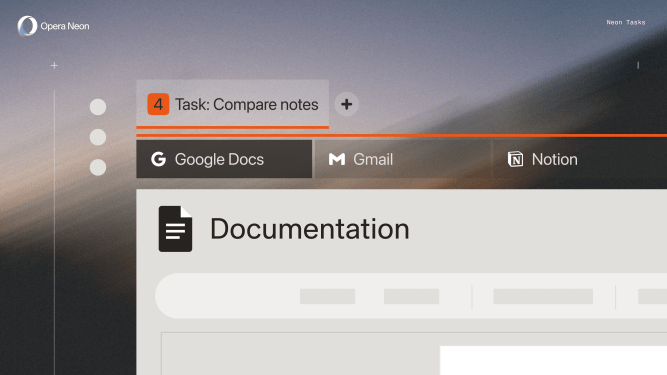Opera launched its new AI-centric browser called Neon on Tuesday. This browser includes the ability to create apps through AI prompts and to create repeatable prompts using a feature named cards. With this launch, Opera joins other companies like Perplexity and The Browser Company that are also developing agentic browsers.
The company first announced it was working on Neon in May, but the browser was only available in a closed preview. It will now begin sending invitations to a select group of people. These users will be able to access the browser for a monthly fee of nineteen dollars and ninety-nine cents.
A company executive stated that Opera built Neon for themselves and for everyone who uses AI extensively in their daily work. They are now welcoming the first users who will help shape the future of agentic browsing.
The browser has several key components. First, it includes a standard chatbot that you can converse with to get answers to your questions. The more advanced feature is called Neon Do, which is designed to help you complete tasks. For example, it can summarize a Substack blog and then post that summary to a Slack channel. Because the browser has the context of your browsing history, you can also ask it to retrieve details from a YouTube video you watched last week or an article you read yesterday.
Opera’s new browser can also write snippets of code, which is useful for creating visual reports with tables and charts. It is not yet clear if users can share these mini-apps with others.
A feature called cards allows users to build repeatable prompts. This is similar to a feature in The Browser Company’s Dia called Skills. Think of cards as the IFTTT, or If This Then That, of AI prompting. You can combine different cards to create new prompts for tasks like comparing products across open tabs. Users can build their own cards or use ones created by the community.
Opera Neon is also introducing a new tab organizational feature called Tasks. These are contained workspaces that group together AI chats and tabs. This feature is similar to Tab Groups combined with the workspaces feature found in the Arc Browser.
In its demonstration, Opera showed Neon completing tasks such as ordering groceries. However, it is important to note that demos do not always reflect real-world performance, especially with AI products. This means Neon will have to prove its capabilities in everyday use.
With this launch, Opera is directly competing with browsers like Perplexity’s Comet and The Browser Company’s Dia. Larger tech companies like Google and Microsoft are also adding more AI-powered features to their own browsers. Unlike many of its competitors, Opera is positioning Neon as a product for power users, which is reflected in its monthly subscription model.

